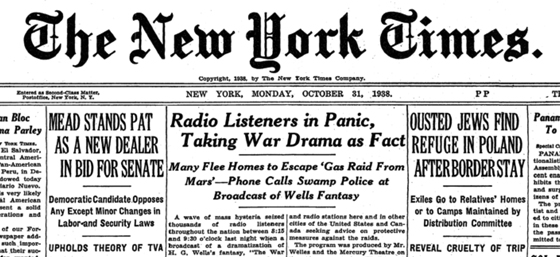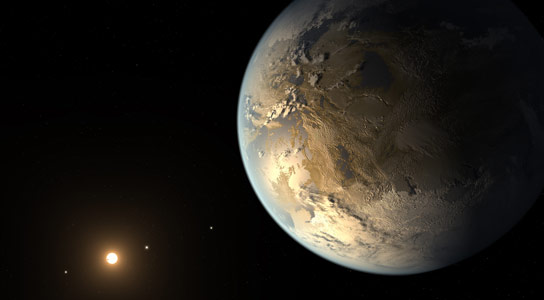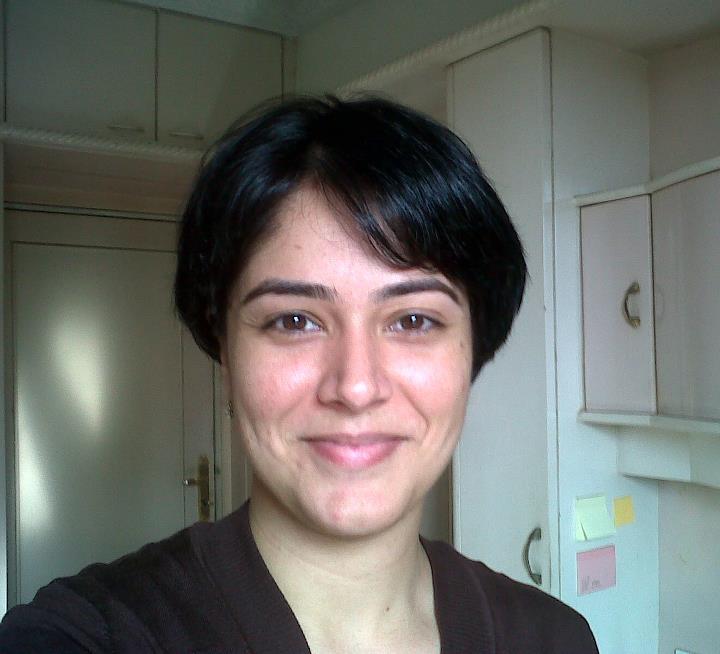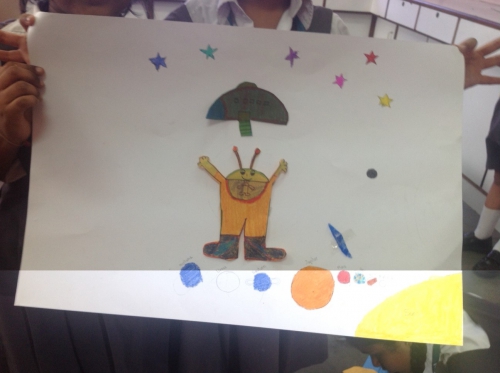by Henna Khan
- Published: Monday, April 21 2014 10:21
“Sometimes I think we are alone in the Universe, and sometimes I think we are not. In either case, the idea is quite staggering” – Arthur C Clarke.
When William Herschel, discoverer of Uranus, saw craters on the Moon through his telescope, he was sure that the circular features on the surface were made by Lunarians. In 1938, Orson Welles dramatized an alien invasion on radio as an adaptation of the novel “War of the Worlds” by H. G. Wells. This caused wide spread panic in New York as people thought Earth was under attack by Martians.

Whenever I teach astronomy to a group of children, questions on aliens are bound to be asked. Just last week I was teaching astronomy to a group of 10 year olds who were so sure (they claimed to have seen pictures) of Aliens who had visited our neighbouring state J (On a side note, they were also sure about Lady Gaga giving a concert on Mars!)
This fascination of children and the general public with aliens and UFO’s can be used to teach science.
The estimated number of planets within our own galaxy is a staggering 1 trillion, with the possibility of 20 to 40 billion of them being habitable planets! Just a few days back the discovery of the first Earth-sized (not Earth-like) planet was made. There are currently about 1,700 confirmed exo-planets.
 Image Credit: NASA Ames/SETI Institute/JPL-Caltech
Image Credit: NASA Ames/SETI Institute/JPL-Caltech
In just the past couple of decades we have amassed a wealth of information regarding the origin of life and about other worlds in the Universe. The quest for searching for extra-terrestrial life is a quest to know more about ourselves – how did we originate? What is Life? Are we alone? – Profound questions asked by Humankind over the ages.
By understanding the natural processes through which life has arisen on Earth from non-life and the role of evolution, it makes us realize our uniqueness in the universe. Thoughts about little green men capturing humans to perform experiments in their flying saucers without leaving behind any exotic traces then seem absurd. Teaching astrobiology helps people differentiate science from pseudoscience.
Astrobiology is a mix of various disciplines – physics, chemistry, biology, astronomy, planetary sciences and geology. It is an excellent way to inspire kids into science who may otherwise not be interested in the subject.
Maybe it will take the finding of evidence of life on another planet to eventually unite all humans on Earth. We will finally be able to stop thinking of ourselves as “Different People in Different Countries” to “one Human Race on Planet Earth”. It also binds us to each and every other species on Earth and to the stars from where the elements in our body have come from.

Lack of contact from aliens also drives home a very strong message. Maybe species end up wiping themselves out through war and hatred before exploring other stars. It also highlights the importance of investing in the space industry to ensure continuation of the human species by inhabiting other planets and by having a plan to neutralize threats from killer asteroids.
The field of astrobiology is a comparatively new science but it has immense potential to inspire generations into Science – be it in studying extremophiles here on Earth or in designing spacecraft to explore the moons of Jupiter and Saturn.
For educators who would like to incorporate astrobiology in their teaching curriculum, here are a few resources to get started:
Website for hands-on Astrobiology activities: http://ares.jsc.nasa.gov/ares/education/program/fingerprints.cfm
Book - Life in the Universe by Jeffery O. Bennett, Seth Shostak (http://www.amazon.com/Life-Universe-Edition-Jeffrey-Bennett/dp/0321687671)
Stanford Astrobiology Course (http://www.stanford.edu/group/astrobiology/cgi-bin/)
###
 After studying Computer Engineering and earning a Masters in Business Administration degree, Henna Khan decided to completely switch careers and pursue something she has been passionate about since she was a kid – Astronomy. In 2013 she started Universe Simplified through which she conducts hands on activity based Astronomy and Science workshops for school kids across Mumbai. She is a strong proponent of using disruptive ways for education to make it fun and inquiry driven.
After studying Computer Engineering and earning a Masters in Business Administration degree, Henna Khan decided to completely switch careers and pursue something she has been passionate about since she was a kid – Astronomy. In 2013 she started Universe Simplified through which she conducts hands on activity based Astronomy and Science workshops for school kids across Mumbai. She is a strong proponent of using disruptive ways for education to make it fun and inquiry driven.









Comments